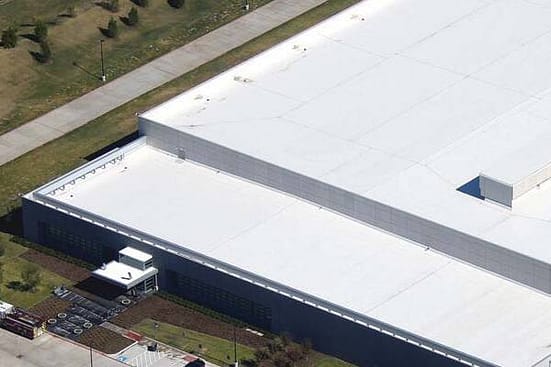 There’s been a lot of debate in the roofing industry regarding TPO vs PVC roofing materials for commercial buildings. While these two types of roof coverings are options, they sure aren’t the only ones. There are many types of roof membranes to choose from and a qualified commercial roofing contractor will be able to assist you in choosing which is right for your circumstances. From modified bitumen (for smaller projects) to EPDM rubber roofs, there is a solution to fit any need.
There’s been a lot of debate in the roofing industry regarding TPO vs PVC roofing materials for commercial buildings. While these two types of roof coverings are options, they sure aren’t the only ones. There are many types of roof membranes to choose from and a qualified commercial roofing contractor will be able to assist you in choosing which is right for your circumstances. From modified bitumen (for smaller projects) to EPDM rubber roofs, there is a solution to fit any need.
The fact of the PVC vs TPO debate is that both types of roofing materials are just about equal in all factors except for durability. They both provide great insulation and UV protection, but there is a difference between the two when it comes to punctures and shrinkage. A low-slope or flat roof can easily be damaged during routing maintenance or falling limbs. Kansas City has some severe weather during our winter months, so shrinkage is definitely an issue.
PVC Roofing Systems
PVC (polyvinyl chloride) is known for its supreme durability and resistance to punctures, tears, and other external threats. In fact, PVC is one of the most commonly used roofing membranes for new commercial build-outs. This plastic roof covering can withstand a lot of pressure and has long been a favorite of commercial roofing contractors.
While the durability of PVC roofing systems has proven to be valuable, so has its ease of installation. The membrane is fabricated by the manufacturer and is sold in large rolls which can be easily adhered to the roofing deck. With value and convenience also comes price. The cost of PVC roofing is substantially higher than TPO roofing systems. So, if you are trying to be extremely budget-cautious during your roofing project, then you may want to look at other options like TPO roofs.
TPO Roofing Systems
As stated above, TPO roofing systems (thermoplastic polyolefin) are more budget-friendly for the commercial property owner than PVC roofs. There are, however, some concerns. Since TPO is fairly new to the market, there is not enough research to conclude its efficacy in defending your building’s roof from the elements. While PVC has been a time-tested solution, the long-term benefits of TPO roofing systems has yet to be seen. In fact, there are probably more negative results than positive. TPO roof membranes tend to shrink during cold weather leaving gaps in the seals which allow for water damage to your commercial building.
Choosing TPO or PVC Roof Membranes
Whatever you decide as to PVC vs TPO roofing systems, the licensed contractors at Roofing Advisors are experts in the field. With several years of experience, our contractors have a strong dedication to making sure that each and every one of our Kansas City customers is happy with their roof installation for years to come.
If cost is an issue and you aren’t too concerned with future repairs or maintenance issues, then a TPO roofing system will work just fine for your flat or low-slope commercial roof.
If you prefer a higher quality product that will last for several decades with minimal repair or maintenance, then a PVC roofing system is your best bet.
Feel free to contact one of our licensed roofing contractors to answer any questions you may have.
